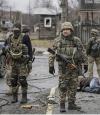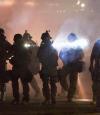Site Search
Copyright © 2024 Highbrow Magazine
by Ulises Duenas
Godfrey was returning to the area at the time to find inspiration for a book about the lives of the girls who live in a group home since they have nowhere else to go. There, she meets Josephine Bell, the de facto leader of the girls. Godfrey quickly learns of their harsh lifestyle and the fact that the city sees them as disposable.
Read more...by Eric Green
After I regained composure and equilibrium, I was left in further disbelief when I discovered two eggs in that pot. I realized I had rudely interrupted the nesting of this bird. I imagine it regarded my sudden appearance as a grave threat to the livelihood of its still-to-be-hatched chicks and wasn’t about to let me interfere.
Read more...

























































































































































































































































































































Copyright © 2024 Highbrow Magazine








